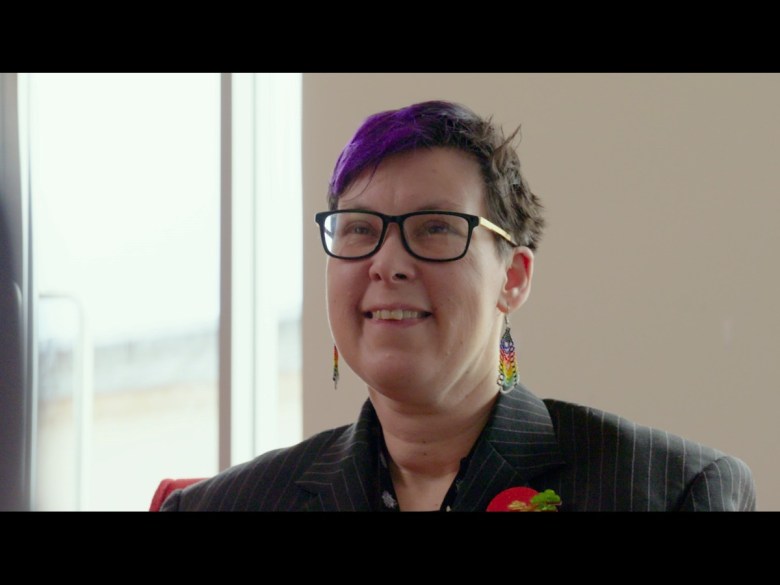This is the first of a two-part interview with Yenn Purkis and Wendy Hill. Read part two here.
The first quarter of this year has seen changes at the Disability Leadership Institute (DLI), with two new Deputy CEOs stepping into their roles.
Yenn Purkis and Wendy Hill are familiar names to many in the sector. They’ll be kept busy in their new jobs, Purkis as Deputy CEO, external relations and Hill as Deputy CEO, operations.
“Both Yenn and I are rather chuffed about this, I think!” Hill said.
She had previously spent many years working in the public service, and said she felt she was often the only disabled person in the team. After discovering the camaraderie and support of the DLI, Hill said she was motivated to spread that feeling with others who felt the way she had.
Purkis said their motivation was similar. They left the public service after 17 years, weighed down by imposter syndrome and rejection sensitivity. Now, Purkis said they feel like they are making a difference.
The pair have begun their roles at a time when the world is seeing pushback against diversity, equity and inclusion (DEI) measures.
Hill, who has a background in HR, said diversity is still very much needed in the workplace.
“My argument is that you need to have diversity of thought and representation of your customers. Because how else do you make sure that you actually address and get the best product for your customers? So I’m very passionate about supporting [DEI] – it’s not just a nice thing to do, it’s really important and it actually affects the bottom line,” she said.
“If you keep employing [the same type of person], it’s an echo chamber. And that’s not useful for any business.”
Purkis agreed.
“[DEI] is absolutely essential. Organisations work with people from intersectional groups, so having people in the organisation from intersectional groups – it’s got to be a good thing. It’s not just being nice. It’s not just being inclusive for the sake of being inclusive,” they said.
Taking advantage of opportunities
Early on, Purkis said, they learned the value of mentors who can see beyond first impressions.
An autistic mentor encouraged Purkis to write their first book, which catapulted their career forward.
Elsewhere, supportive managers made all the difference in their day-to-day life in the public service.
One in particular brought a smile to Purkis’ face.
“She was lovely and really supportive and saw the positives in what I had to offer, because a lot of people see me and they get a little bit freaked out. I’m not vanilla – I’ve got pink hair and tattoos. I’m really not your usual professional. But when people see beyond that… and actually see the huge benefits that I have to offer and that other people have to offer, in my life that’s always been very affirming because work is extremely important to me.”
Hill joined the public service straight out of high school, and said she deliberately made the decision to move around within it to gain experience with different managers and environments.
“I ended up in HR because I like being that connector, I like being the person who can influence, can make a change, can help people. And that’s reflected in my current role with the DLI as well, because that’s what I’m going to be doing,” she explained.
She said she uses each workplace experience as a learning opportunity to develop herself for the next role.
Read part two next week.

